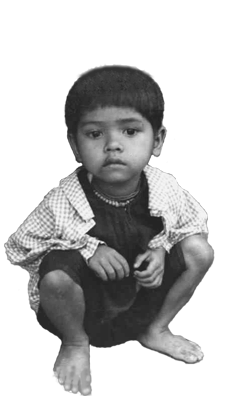


|
There are many things for which A-502 could have received media coverage. However, the event that actually put the team in the news was a daring rescue mission far west of Camp Trung Dung. The focus of the mission was a tribe of defenseless mountain villagers. This operation would give the members of A-502 the opportunity to live the Special Forces motto De Oppresso Liber . . . to free the oppressed. Mid-morning on an early August day in 1968, three frail Montagnard villagers made their way to A-502's My Loc outpost. The men had found Chieu Hoi (Safe Passage) leaflets dropped from U.S. Psychological Operations aircraft. The passes were intended for enemy soldiers and promised good care if they surrendered. The Montagnards hoped that if they could find the Americans who dropped the Chieu Hoi passes they might be able to secure help for their village. Thus, their journey and quest for freedom began. After traveling east for approximately three days, the trio of Montagnard villagers did, in fact, find the help for which they had so desperately searched. They found Americans, the men of A-502. Upon completing their story and plea for help, the men presented a terrible dilemma to those listening to their story. According to the three, one of the men, Mang Quang, had been held in the VC/NVA camp for a long period of time. Convincing the VC that he would be cooperative, Mang Quang asked to be returned to his work in the fields where he helped cultivate crops to feed enemy soldiers. While his request was granted, Mang Quang was told that he must visit the base camp routinely or his family would be found and killed. By the time the men reached My Loc, they had already been away from the village for three days. Mang Quang told the Americans that he feared his family might be killed if he did not return by the next day. It was already mid afternoon when the Montagnards finished telling their story. The requirements to launch a rescue mission would require thought and planning, an assault force to effect the rescue, support units, coordination considerations, creating an overall special operations plan, and, most importantly, determining the exact location of the village. Despite the difficulties and danger in acting so quickly, the men of A-502 accepted the challenge. Very early the next day, as morning mist was still rising off the jungle canopy, the rescue unit struck. Swooping in and landing in helicopters, the team took control of the mountainside. The rescue would require three missions to the mountainside village and would take approximately one week to complete. When word of what A-502 was accomplishing spread throughout the country, various media agencies sought coverage of the unusual rescue attempt. On the third day of the mission when the choppers settled in on A-502's runway, one of them was filled with members of the press. Among them were representatives from major news agencies such as UPI (United Press International), Scripps-Howard, CBS Television, and others. David Culhane, the CBS reporter, arrived with a cameraman and soundman . . . the others with 35mm cameras, pads and pencils. When it came time to go, the entire press group headed west with the A-502 team as they attempted to find and rescue the remaining Montagnard families. When the mission ended, 165 Montagnard villagers had been rescued and transported to the safety of A-502's compound. Team members cared for the families like so many attentive mothers while members of the media conducted interviews. Then, wasting no time, they began communicating their various stories of what had happened. The article that appears on the following pages, was written by Don Tate, a Scripps-Howard Newspapers war correspondent. Don served seven tours in Vietnam for his news agency and was winner of the prestigious Ernie Pyle Memorial Award. He was also the author of "Bravo Burning." Don was on the operation with the others and was given access to an interpreter for purposes of gathering information for his report, which he collected independently. David Culhane's filmed report was aired on CBS's Morning
News, Afternoon News, and Evening News with Walter Cronkite. David
ended his account of the rescue in The Valley of the Tigers with the following
comment: |

|
This child is just one among the many rescued and cared for by the men of A-502. Question: What Special Operations soldier could look at this tiny person and not be willing to risk his own safety in order to liberate this child from persecution and abuse? Answer: None!! While Special Operations solders are trained to kill with virtually every weapon on the field of battle, it is missions like this one, rescue missions . . . missions of mercy, that give them the greatest feeling of accomplishment. The important thing to know about this mission is that the men of A-502 never saw the faces of the villagers before placing themselves in harms way. They only knew that the villagers needed help. |
| |
Special Forces - The Silent Professionals |
This website is a tribute to those who served at Special Forces Detachment A-502 in the Republic of South Vietnam.
Copyright 1999-2020 - Special Forces Detachment A-502. All rights reserved.